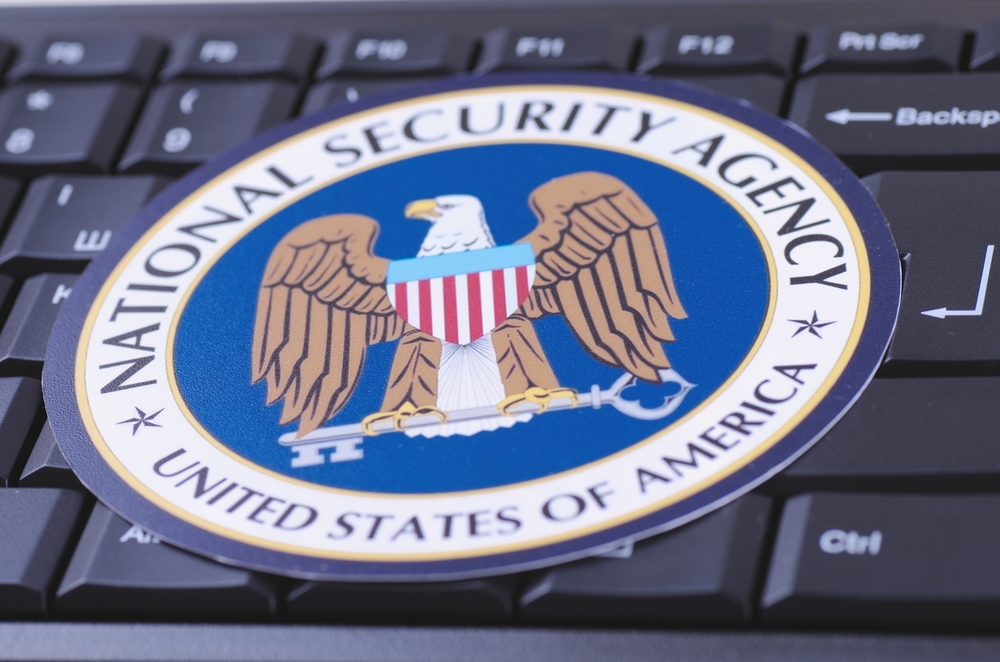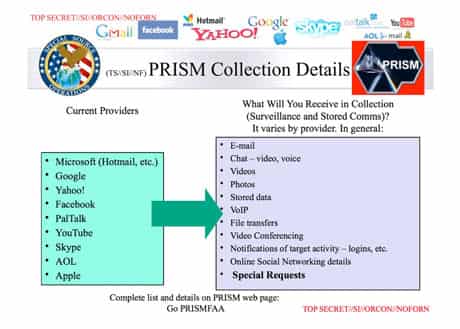NSA Taken to Court Over Warrant-Free Surveillance
The ACLU announced this week that the NSA’s PRISM program, revealed by national security whistleblower Edward Snowden in 2013, will be reviewed in court. The PRISM program allows the NSA, as well as other U.S. intelligence agencies, to access U.S. citizens’ international emails, internet calls and chats without a warrant.
U.S. Government Taken To Court
Most of the post-Snowden-revelations lawsuits against the NSA have failed because the courts have said that the civil rights organizations, such as the ACLU, “don’t have standing” to sue the NSA. However, this time, the ACLU is helping an individual who claims to have been personally harmed by the NSA’s surveillance.
The U.S. government accused Agron Hasbajrami from Brooklyn of attempting to provide material support to a designated terrorist organization in Pakistan. After Hasbajrami pleaded guilty to one of the charges against him, the government admitted that it had been reading his emails illegally without a warrant.
Now, Hasbajrami is asking the Second Circuit Court of Appeals to throw out the tainted evidence. The ACLU has filed a brief in favor of Hasbajrami arguing that the government’s actions violated the Fourth Amendment when it exploited an American’s communications through the PRISM program.
PRISM’s Relationship With Tech Companies
Snowden revealed that a number of major technology companies, including Microsoft, Google, Yahoo, YouTube, AOL, Skype and Apple, were part of the PRISM program. He revealed that NSA was accessing emails, chats, video calls and other types of private content from these companies.
Back in 2013, PRISM was believed to be a program through which the NSA could gain direct access to those companies’ servers. However, all of the involved companies denied this at the time. The NSA supposedly uses secret FISA orders to request data that is normally encrypted from tech companies.
U.S. Government’s "Backdoor Searches"
The U.S. government has insisted that it uses PRISM and other similar programs, such as Upstream, to target foreigners’ communications. However, the government’s interpretation of that mission seems to be quite broad. Some Senators have criticized it in the past for being a “backdoor” into Americans’ private communications. The NSA has also admitted to including millions or tens of millions of people into such investigations, for instance, by intercepting all three-hop phone records.
Get Tom's Hardware's best news and in-depth reviews, straight to your inbox.
This broad interpretation allows the NSA to capture and then access the internet data of virtually all Americans. A rule change by former U.S. President Barack Obama allowed the NSA to share this data with 16 other agencies, including the CIA, FBI, DEA and IRS.
The passing of the recent FISA extension codified the change into law and has given these agencies permission to read all Americans’ data that passes through the internet without a warrant. The law says that the government only needs to obtain a warrant after the fact and if it would like to use that data in court, long after the government could have used it to fish for crimes (something that, some could argue, is supposed to be banned by the Fourth Amendment).
Circumnavigating the Fourth Amendment?
The ACLU noted that FBI agents have already been running PRISM searches on captured data using only names and email addresses without first obtaining a warrant. The civil rights group believes allowing the government to have easy access to emails, chats and other personal communications without requiring an individualized warrant from a judge is an “end-run around the Fourth Amendment.”
On Monday, the ACLU plans to explain to a three-judge panel why the government should be required to seek a warrant before doing such searches in order to obey the Constitution.
Lucian Armasu is a Contributing Writer for Tom's Hardware US. He covers software news and the issues surrounding privacy and security.
-
Giroro It's not just circumventing the fourth amendment. The government is also violating the third amendment when the NSA forces companies to host equipment and services in support of spy programs targeting US citizens and foreign allies.Reply -
hotaru251 Nothing will come from this sadly.Reply
They will still do the same stuff, but just do it sneakier.
US Gov. is too large and unregulated anymore. -
teknic111 I am no fan of blanket surveillance, but this seems to be a poor case to challenge the NSA. After all, there is solid proof that he was supporting known terrorist. If anything, it seems like the surveillance program did what it was designed to do.Reply -
leoscott Reply21259315 said:Nothing will come from this sadly.
They will still do the same stuff, but just do it sneakier.
US Gov. is too large and unregulated anymore.
Correct. They have agreements with Britian's GCHQ who will provide them the information on US citizens. It just won't be useable in court. -
stdragon The NSA is incompetent. First, they develop tools to exploit Windows and the SMB protocol. Secondly, they lose control of them and off they go published all around the world. Before long, they get used in the latest Ransomware attack that took down the UK medical / health industry. Bravo!!! *slow clapping*Reply
Oh, and let's not forget what they did to Lavabit.
-
Solandri Reply21259849 said:I am no fan of blanket surveillance, but this seems to be a poor case to challenge the NSA. After all, there is solid proof that he was supporting known terrorist. If anything, it seems like the surveillance program did what it was designed to do.
The key issues are:21262460 said:The ACLU is helping a terrorist.
1. Whether the government can pre-record everything (without a warrant), then run searches on that pre-recorded info after getting a warrant. The article doesn't really explain this clearly. The fact that the FBI has run some searches against this pre-recorded database without first getting a warrant is supposed to be an example of how such a database invites abuse in violation of the 4th Amendment.
2. Whether the government needs a warrant if one party of the communications is outside the U.S. The government's stance is that if one party is not in the U.S., then they are not protected by the 4th Amendment, so they don't need a warrant to record it. Basically, they claim they are copying the communiques of the person outside the U.S., not the communiques of the U.S. citizen inside the U.S. (even though both are the same communique). The ACLU's argument is that a single party of the communique falling under Constitutional protection is sufficient to require a warrant.
Whether or not the defendant is a terrorist or is even guilty is irrelevant. I think the ACLU is a horribly biased organization, but I'm with them on this one. (1) Just makes it too easy for the government to secretly abuse ("No your honor, I never ran such a search "). And (2) should err on the side of the Constitution providing more protection, not less. -
stdragon IANAL, but to my knowledge The 4th amendment only applies to US citizens and non-citizen with permanent residency. Visitors and illegal aliens aren't protected however.Reply
So if the NSA were to capture communications of a US citizen abroad, I'd imagine it couldn't be used in a US court of law due to the "fruit of the poisonous tree doctrine". -
LordConrad You can thank the Patriot Act for most of this. They wrote it to expire in five years, but they keep renewing it. Once a government gets more power, it will do anything it can to keep that power. Our Forefathers knew this and tried to warn us, but after 9-11 everyone was so concerned for their safety that they allowed themselves to be conned out of some constitutional rights.Reply

